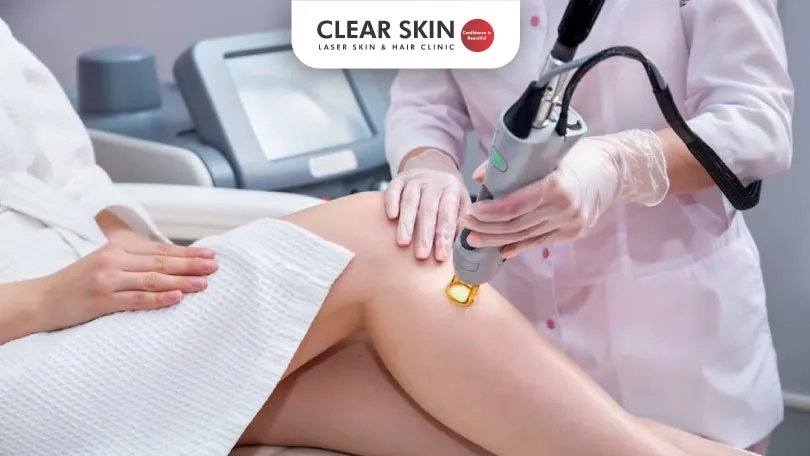How Painful is Laser Hair Removal Really?
Reviewed By: ![]() Dr Dhananjay Chavan
Dr Dhananjay Chavan
Updated on: 11th September, 2023

Do you ever find yourself spending countless hours shaving, waxing, or plucking away unwanted hair, only to have it grow back just as fast? Are you considering laser hair removal treatment but worried if laser hair removal is painful?
It’s no secret that removing unwanted hair can be a tedious and time-consuming task, along with discomfort and pain. This is where laser hair removal comes into play as a popular alternative to help get rid of unwanted hair. But the big question is, how painful is laser hair removal really?
Table Of Content
- Does Laser Hair Removal Hurt
- Conclusion
Does Laser Hair Removal Hurt?
Let’s find out.
Laser hair removal uses a concentrated beam of light to remove unwanted hair. The laser emits a specific wavelength of light which is absorbed by the pigment in the hair follicle, damaging the follicle and inhibiting future hair growth.
During the procedure, the laser is directed at the target area and shot. The affected hair follicles then get heated due to this laser energy. The heat damages the follicles and hair stem cells and prevents further growth. This shot of heat can be felt as slight pain and discomfort by the patients.
Many people describe the sensation of laser hair removal as a rubber band snapping against their skin or a mild stinging or burning sensation. However, some people may experience more intense pain or discomfort, particularly in sensitive areas such as the bikini or underarms.
The pain level experienced during laser hair removal can vary depending on several factors, including the individual’s pain tolerance, the area of the body being treated, the type of laser used, and the settings used on the laser.
Most dermatologists use cooling measures, such as chilled air or a cooling gel, to help minimise discomfort during the treatment. You may also take pain medication before the treatment or ask the doctor for skin numbing cream to make the treatment painless.
So, is laser hair removal painful? Yes, but it may cause less discomfort or pain than other hair removal methods. It’s important to discuss any concerns or questions about pain management with your dermatologist before the procedure to ensure that you have a comfortable experience.
Do You Know?
Roughly 250 Patients Are Treated
Everyday By These Dermatologists
(You are one click away from flawless skin)
Meet Our Dermatologist!
Conclusion
In conclusion, while laser hair removal can cause some discomfort, it is often less painful than traditional methods like waxing or plucking. The sensation is typically described as a rubber band snap or mild stinging, with the intensity varying based on individual pain tolerance and treatment area. Dermatologists often use cooling techniques and numbing creams to enhance comfort.
If you are looking for laser hair removal treatment, book your appointment with Clear Skin Clinic, Pune. Our expert dermatologists are committed to providing safe and effective laser hair removal treatments. We use advanced technology and customised treatment plans to ensure that patients are comfortable and achieve the best possible results.
Further Reading
How to get the perfect glow: My essential morning skincare routine
Discover essential steps for a morning skin care routine to keep your skin glowing and healthy. Consult ClearSkin Pune for personalized skin care advice.
7 Tips to Brighten Dull Skin Naturally
7 proven tips to brighten dull skin naturally. Learn how to achieve a radiant complexion with simple skincare routine and lifestyle changes.
What Causes Hyperpigmentation After Acne and How Can It Be Treated?
Discover causes & treatments for post-acne hyperpigmentation. Explore skincare tips like sunscreen, topical creams, chemical peels, and laser therapy for clear skin.
10 Common Skincare Mistakes You Might Be Making and How to Avoid Them
Discover 10 common skincare mistakes that could harm your skin, from over-cleansing to skipping sunscreen.
Have thoughts? Please let us know
We are committed not only to treating you, but also educating you.






